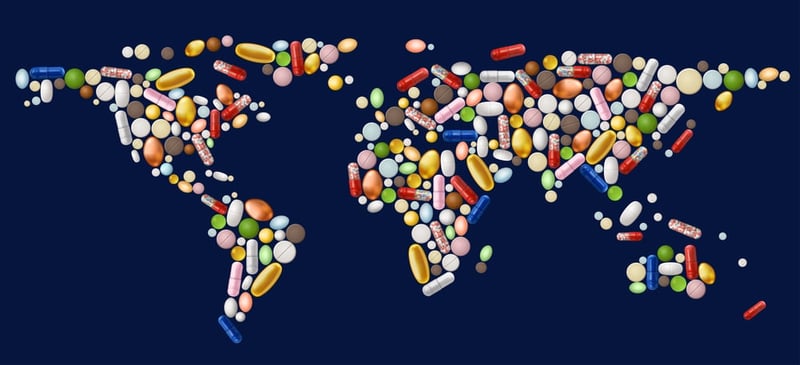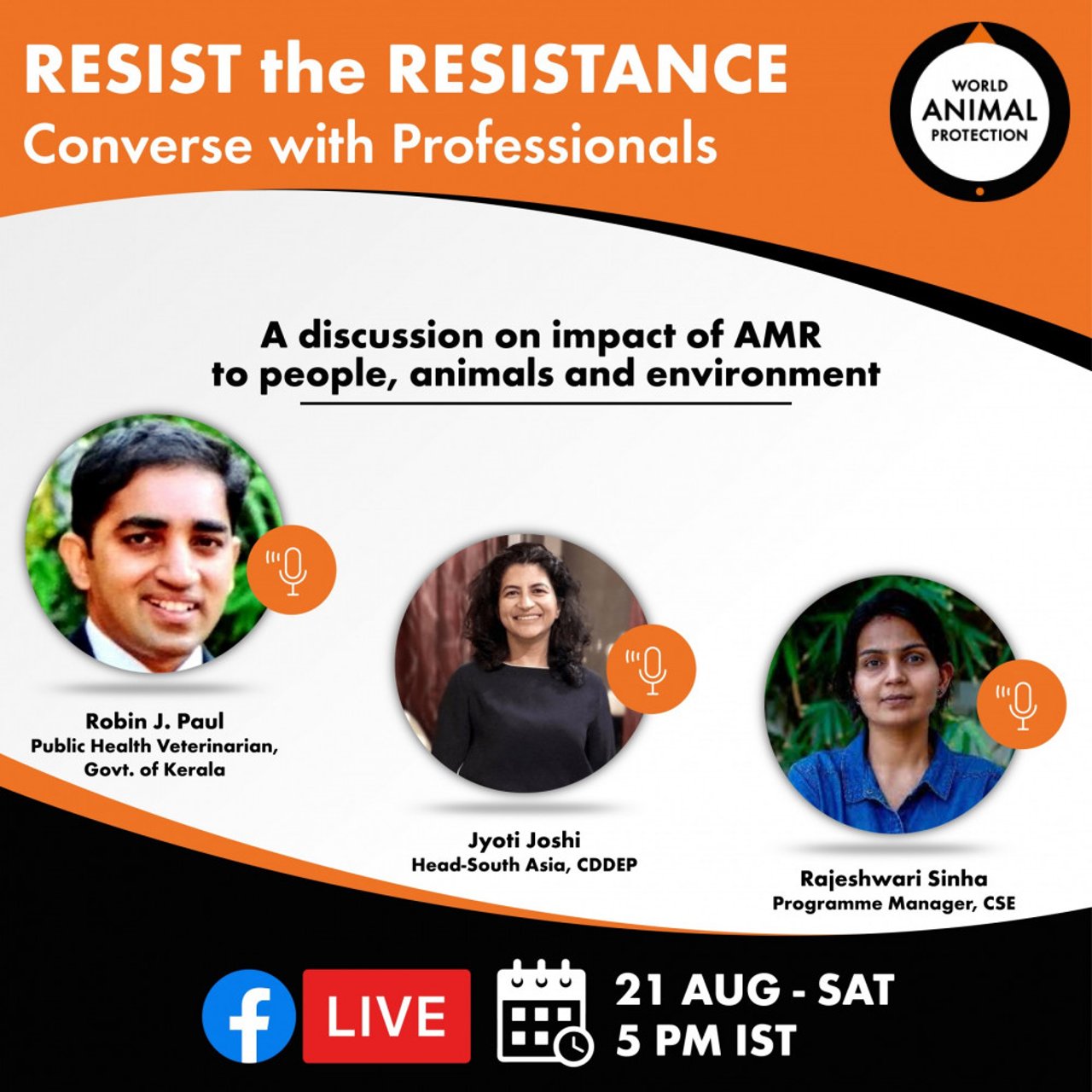
A discussion on the impacts of antibiotic use in people, animals and environment.
Blog
We conducted a live show on Facebook to make people aware about the issue of Antimicrobial Resistance and its impacts on people, animals, and the environment.
Resist the Resistance - A conversation with Professionals
Our online event on Facebook made people aware about the issue of AMR and its impacts on people, animals, and the environment. The event helped fill the gap between these three aspects due to the presence of professionals from the particular areas and aided the audience in thinking about AMR from the lens of One Health. We had Dr Rajeshwari Sinha from Centre for Science and Environment, Dr Jyoti Joshi from Centre for Disease, Dynamics, Economics and Policy and Dr Robin J. Paul, Public Health Veterinarian, from Govt. of Kerala.
The discussion kickstarted with positive and negative impacts of antibiotic use in people, animals and the environment. Then, linking the usage of 75% of the global antibiotics in animals impacts people and the environment. It was shared that
- The high use of antibiotics in humans (from pharmacies, hospitals) and animals and the environment lead to selection pressure on the bacteria and selects for resistance.
- Due to limited new antibiotics and existing ones becoming ineffective, it will be difficult to stop the spread of infections which will mean greater circulation of the infectious determinant through waste in the larger environment, greater spread of the infection—unless existing waste management systems are effective against them.
The existing gaps between these three sectors – animals, people, and the environment-were also discussed when controlling AMR through the authorities. It concluded that One Health is the key—sectors need to talk and work in a team.
Bringing together different key areas of AMR
Such events help to bring different key areas of AMR together and raise the issue of low animal welfare into the conversation. We will be able to highlight that Animal welfare is one of the key solutions to combat AMR. We are trying to reignite the discussion around Antimicrobial Resistance and linkages with Farm animal welfare, make visible the rising antimicrobial resistance issue and its interlinkages with other issues in the frame of Animals, People, and Planet.
Take a step to protect Animals, People and Planet
The impact of Antimicrobial Resistance
The health burden of AMR falls on low and middle-income countries like India, which includes uneven access to affordable antimicrobials and health care. AMR also increases negative health outcomes during pandemics where antimicrobials are needed to treat secondary infection, putting health systems under extreme pressure. Keeping genetically uniform animals squashed together, subjected to painful mutilations, and unable to express their natural behaviours is a risk factor for the emergence of superbugs from antibiotic overuse and pandemics. In addition, Inappropriate use of antimicrobials in animal farming to compensate for poor husbandry drives AMR, impacting food safety, and AMR in manure spread on fields creates spill over into our environment and waterways.
A survey from World Animal Protection
World Animal Protection 2020 survey across 15 countries found that 92% of people in India are concerned about superbugs from farm animals and want animals treated well and antibiotics used responsibly. World Animal Protection India believes that antibiotics should be reserved to treat animals, not used to promote fast growth or as band-aids across the herd to prevent stressed animals from getting sick.
Recognize meat for what it really is: the antibiotic- and pesticide-laden corpse of a tortured animal. Ingrid Newkirk
